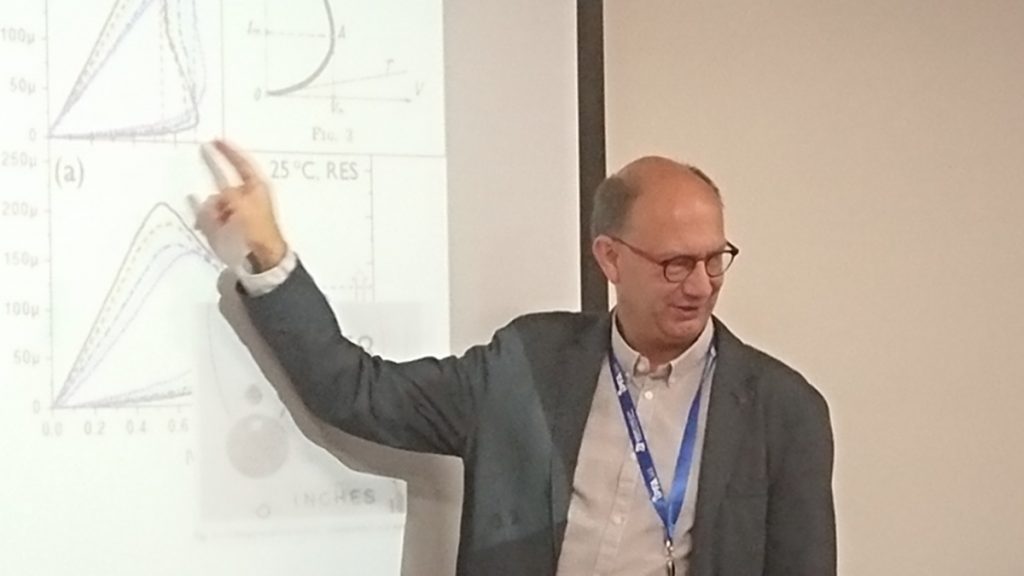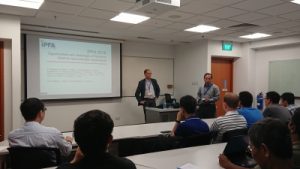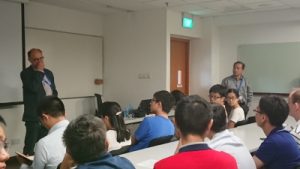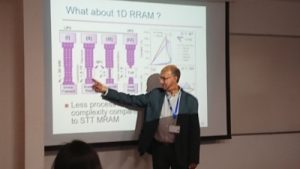
Many technological concepts of Resistive RAM (RRAM) have been demonstrated in recent years. Simultaneously, a paradigm shift towards integrating computational functions into memory has been observed, with neuromorphic networks as one example.
In this talk, Dr Robin presented where and how RRAM might come in as a potential functional device for developing hardware accelerators for neuromorphic applications. He also discussed the opportunities for using RRAM as a true computational element in an integrated in-memory computing concept. Understanding the dynamic statistical properties of RRAM is the key challenge to unlock the potential of these devices for on-chip artificial intelligence.




Robin Degraeve is currently a Principal Scientist at imec, Belgium. He received the M.Sc. degree in electrical engineering from the University of Ghent, Belgium, in 1992 and the Ph.D. degree from KULeuven, Belgium, in 1998. In 1992, he joined imec, Leuven, in the Device Reliability and Characterization Group. His work has been focusing on the reliability aspects of thin insulating layers under electrical stress. His current research interests include the physics of degradation and breakdown phenomena in gate oxide films, the reliability of flash memory devices and the characterization and the reliability of high-k materials as gate insulators for future CMOS generations and memory applications. Lately, he has been working mainly on Resistive RAM memory development and modeling. He is currently involved in the exploration of Resistive RAM for machine learning purposes.

